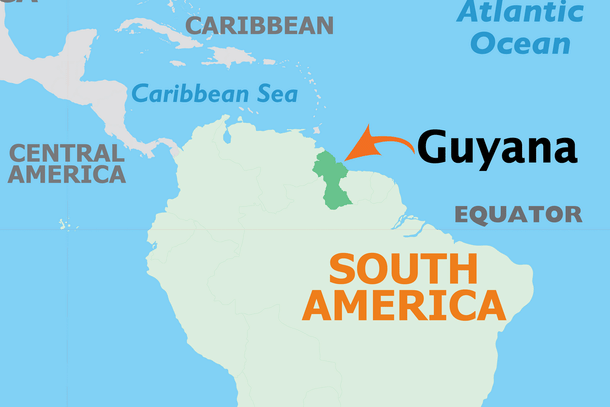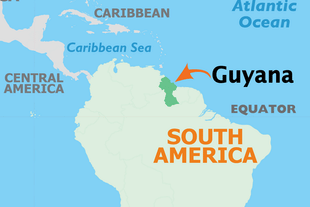World
Guyana: Why This Small South American Nation Has Become Important To India's Strategic Calculus
Arjun Brij
Nov 20, 2024, 04:44 PM | Updated Nov 22, 2024, 07:02 PM IST
Save & read from anywhere!
Bookmark stories for easy access on any device or the Swarajya app.


Prime Minister Narendra Modi's historic visit to Guyana is a significant milestone in the long-standing relationship between India and the Caribbean nation, underscored by deep historical and cultural ties.
Nearly 40 per cent of Guyana's population is of Indian origin, tracing their ancestry to indentured labourers brought to the region by British colonial powers in the 19th century.
Over the years, this diaspora has not only preserved Indian culture, traditions, and language but also contributed significantly to Guyana's economic development.
This is the first visit by an Indian prime minister to Guyana since Indira Gandhi's visit in 1968, marking a renewed focus on Indo-Caribbean relations. Modi's presence underscores the importance of Guyana as a partner in India’s broader engagement with the Global South. It is a testament to India’s growing interest in fostering collaboration with Guyana, a country experiencing rapid economic transformation due to recent discoveries of vast oil and gas reserves.
The diaspora factor adds a unique dimension to Modi’s visit, emphasising India's soft power. With a rich legacy of cultural diplomacy, Modi’s engagements with the local Indian community, as well as his address to the Guyanese Parliament, will symbolise India’s respect for its shared history and its vision for a collaborative future.
The Guyanese government is also expected to confer Modi with its highest national award, “The Order of Excellence,” along with another Caribbean nation, Barbados which will bestow upon him the "Honorary Order of Freedom of Barbados."
India’s growing energy collaboration with Guyana highlights the strategic importance of the Caribbean nation in diversifying India’s energy sources. Indian Oil Corporation Ltd (IOCL) recently purchased 1 million barrels of crude oil from Guyana, complemented by an additional 1 million barrels acquired by a consortium led by HPCL-Mittal Energy. State-owned entities such as ONGC Videsh and Oil India Limited (OIL) are also exploring opportunities in Guyana’s rapidly expanding oil and gas sector.
This engagement aligns with India’s broader strategy to reduce dependence on the Middle East, mitigate potential supply disruptions, and address global scrutiny over oil imports from Russia. Guyana and its Caribbean neighbours offer a stable and reliable alternative for India’s energy needs.
Beyond hydrocarbons, the partnership extends to agriculture, healthcare, renewable energy, and technology. Guyana’s leadership views this visit as an opportunity to elevate cooperation in these areas to benefit both nations. Bilateral trade, which saw fluctuations in recent years, is expected to gain momentum with the signing of new agreements, bolstering economic ties.
The visit will also focus on developmental aid, where India has been a longstanding partner in Guyana’s progress. Initiatives such as solar lighting for thousands of households, the supply of HAL-228 aircraft, and technical training programs for Guyanese professionals are also on the table.
During his visit, Prime Minister Narendra Modi will also co-chair the India-CARICOM Summit alongside Grenadian Prime Minister Dickon Mitchell, strengthening ties with the 15-member regional bloc. Discussions will focus on expanding cooperation in energy, infrastructure, agriculture and food security, health and pharmaceuticals, and technology and innovation.
Modi’s visit also symbolises India’s ambition to expand its global footprint by strengthening its role in emerging energy markets. Guyana’s rise as a major player in the oil and gas sector aligns with India’s energy diversification strategy, reducing dependence on traditional suppliers.
Moreover, by engaging with CARICOM nations, India demonstrates its commitment to fostering equitable global partnerships, ensuring that benefits extend beyond bilateral ties to the broader Caribbean region.
Arjun Brij is an Editorial Associate at Swarajya. He tweets at @arjun_brij




